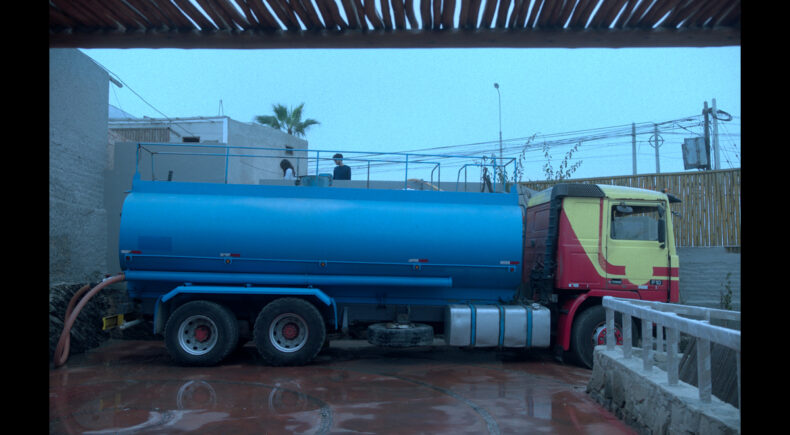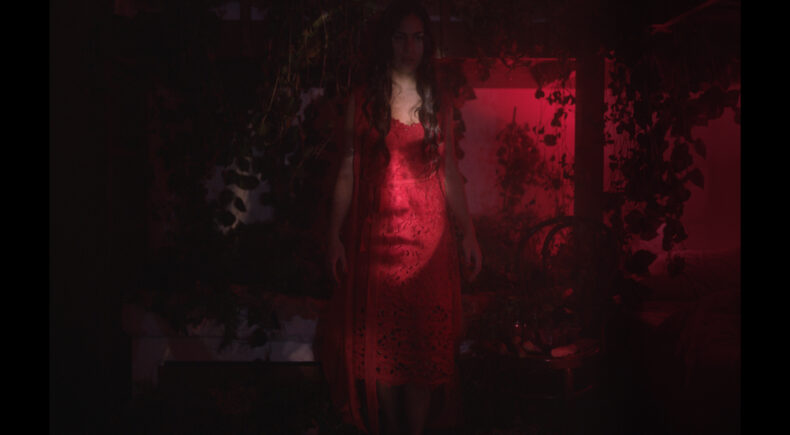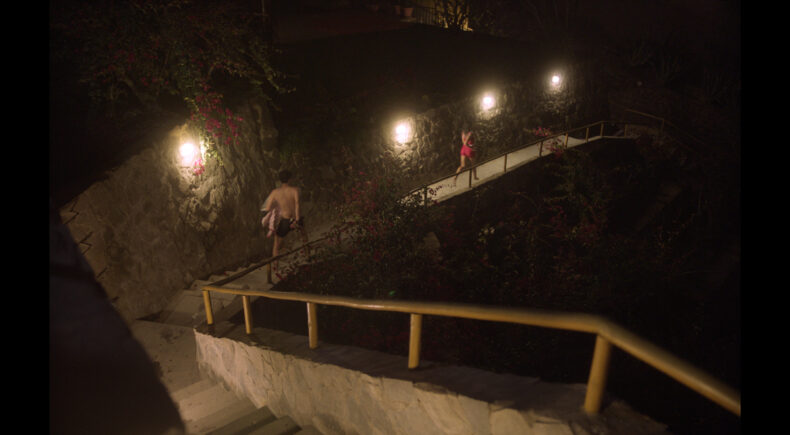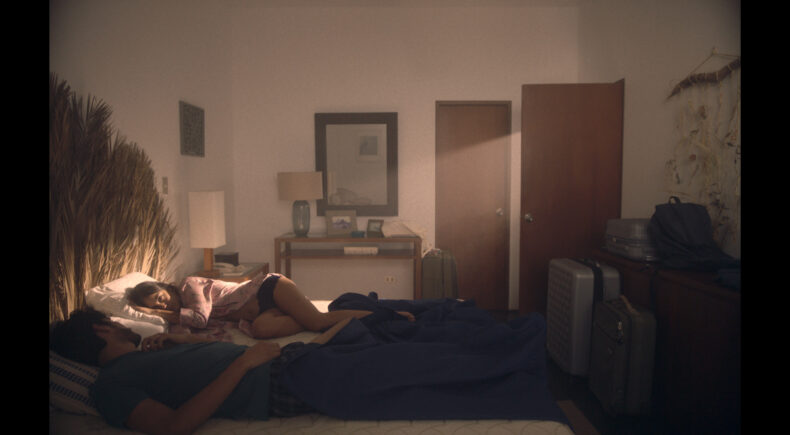Difference & Repetition, 2020
Director: Mav Block
United States, Peru, Argentina, 2024, 86 min
Shooting Format:Digital
Festival Year:2025
Category:Narrative Feature
Genres:Drama, Romance
Cast:Elisa Tenaud, Renato Rueda, Lu Celestino, Valentina Cottet
Crew:Writer & Director: Mav Block. Producers: Daniel Rehder, Mav Block, Lu Celestino, María Arrastoa, Max Woertendyke. Editors: Mav Block, María Arrastoa. Director of Photography: Julián Amaru Estrada. Sound & Music: Mav Block. Sound Mix: Facundo Nahuel Gómez. Art Director: Romina Ortega. Costumes: Joselyn Zelada, Lu Celestino
Email:mav@mavblock.com
Synopsis
In March 2020, an Argentine woman flees New York with her Peruvian husband for his family’s empty beach house outside of Lima, whereupon an unplanned pregnancy precipitates the destruction of her marriage. In the present, she rips the moments of this narrative from their context, and reconstructs her story to reckon with her profound feeling of loneliness and the experience of time in which it has trapped her.
About the director
Mav Block is an American filmmaker who received his BFA in film from NYU's Tisch School of the Arts, and his MA in the interdisciplinary liberal arts from Duke University, where he wrote a thesis on the philosophy and political theory of Hannah Arendt. His last short film as director, ADHERENCE (2016), told the intertwined stories of three patients in a psychiatric ward at a critical moment in their care.
Filmmaker's note
"Difference & Repetition, 2020" began when Lu Celestino told me that her friend’s sister was banned from the kitchen by her therapist: she would stay up all night baking to avoid sleep, neglecting to eat or even taste a single confection she produced. Already, I had wanted to make a film about being alone with another person, and by chance, a day earlier I had read an article about a phenomenon in which people procrastinate sleep because they feel as if they have no control over their days. Silvia, the subject of my film, was born.
In hindsight, it was a peculiar choice to write a film about the destruction of a marriage while enjoying the “honeymoon” phase of a new relationship and falling deeply in love. In the film, Silvia and her husband Marcelo can only feign their relationship: for them, matrimony is fetishistic. It is as if they are cosplaying a marriage – or simply playing a game. However, the confines of quarantine change the state of play between them, and finally, reality puts an end to the game altogether in the form of a pregnancy.
After initially writing and developing the film, I put it down. What a difference a year can make. The “honeymoon” of my own relationship had ended and gave way to a Sisyphean drama the passion of which was only matched by its toxicity. I didn’t return to the project so much as rediscover it: I found a story that was not my own but that I had come to live nonetheless, and characters that were neither me nor my “ex” but who felt so close to me as to make my hair stand on end. Daniel Rehder, one of my closest friends from film school, pushed me to realize it as a feature-length project, and in doing so not only produced the film but likely rescued me from what can only be described as a kind-of psychosis particular to the heartbroken.
To the extent that the film re-presents Silvia’s story during quarantine and the breakdown of her relationship as a dramatic narrative, it is a byproduct of its objective to expose the experience of time unique to a particular state of loneliness. The “story” is never rendered directly. Instead, it is as if we are passengers inside Silvia’s mind and witness to the contortions produced by the movement of her consciousness as she tells the story to herself and relives, rearranges, and rewrites her memory of her marriage’s deterioration from a present point in time. To remember something is to reconstruct it, and perhaps there is no figure in memory that is more constructed than that of our own self as it resides in the past. Through a constantly shifting constellation of images, words, music, and noise, Silvia seeks to extinguish the dissonance within herself and escape the doom-loop in which her thinking is caught.
Of course, nothing is so simple. Relationships often do not end cleanly, and some do not even end once they’ve ended. Sometimes you repeat what feel like the same moments again and again, as if a slave to a machine of your own making. Sometimes you find yourself trapped within a moment in time, stuck in your experience alone with another person, struggling to rid yourself of the sensation their absence produces. Sometimes you lose yourself so completely that reality becomes remote, and your sense of self turns to dust.







